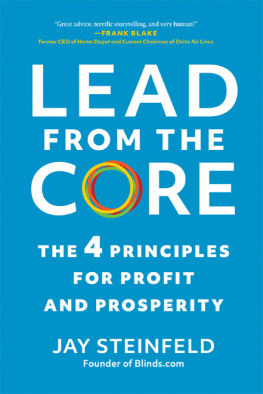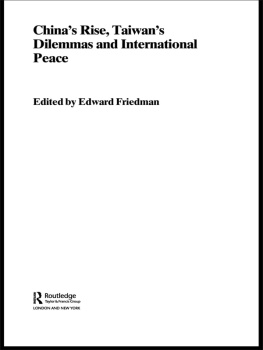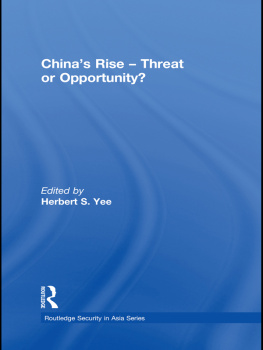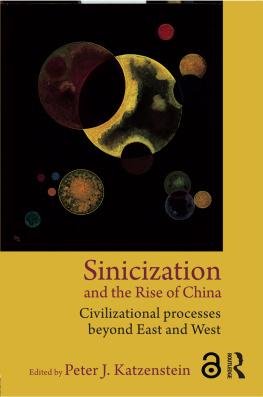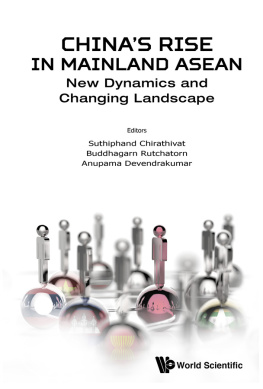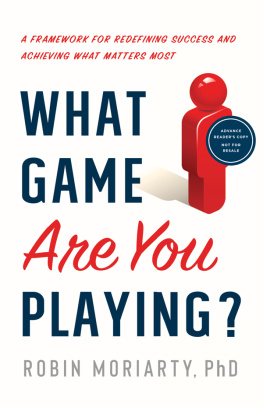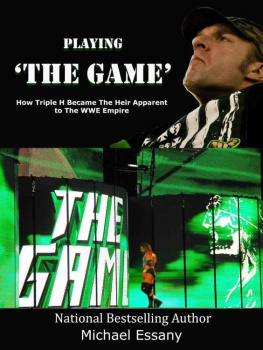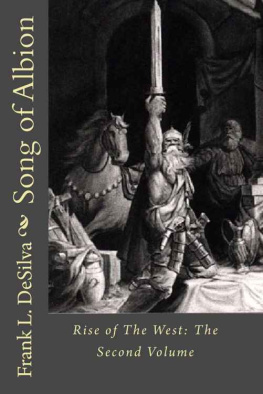Steinfeld - Playing our game why Chinas rise doesnt threaten the west
Here you can read online Steinfeld - Playing our game why Chinas rise doesnt threaten the west full text of the book (entire story) in english for free. Download pdf and epub, get meaning, cover and reviews about this ebook. City: USA;New York;Oxford, year: 2010, publisher: Oxford University Press, genre: Politics. Description of the work, (preface) as well as reviews are available. Best literature library LitArk.com created for fans of good reading and offers a wide selection of genres:
Romance novel
Science fiction
Adventure
Detective
Science
History
Home and family
Prose
Art
Politics
Computer
Non-fiction
Religion
Business
Children
Humor
Choose a favorite category and find really read worthwhile books. Enjoy immersion in the world of imagination, feel the emotions of the characters or learn something new for yourself, make an fascinating discovery.

- Book:Playing our game why Chinas rise doesnt threaten the west
- Author:
- Publisher:Oxford University Press
- Genre:
- Year:2010
- City:USA;New York;Oxford
- Rating:3 / 5
- Favourites:Add to favourites
- Your mark:
- 60
- 1
- 2
- 3
- 4
- 5
Playing our game why Chinas rise doesnt threaten the west: summary, description and annotation
We offer to read an annotation, description, summary or preface (depends on what the author of the book "Playing our game why Chinas rise doesnt threaten the west" wrote himself). If you haven't found the necessary information about the book — write in the comments, we will try to find it.
Steinfeld: author's other books
Who wrote Playing our game why Chinas rise doesnt threaten the west? Find out the surname, the name of the author of the book and a list of all author's works by series.
Playing our game why Chinas rise doesnt threaten the west — read online for free the complete book (whole text) full work
Below is the text of the book, divided by pages. System saving the place of the last page read, allows you to conveniently read the book "Playing our game why Chinas rise doesnt threaten the west" online for free, without having to search again every time where you left off. Put a bookmark, and you can go to the page where you finished reading at any time.
Font size:
Interval:
Bookmark:
PLAYING OUR GAME
PLAYING OUR GAME
EDWARD S. STEINFELD
Why Chinas Economic Rise Doesnt Threaten the West


Oxford University Press, Inc., publishes works that further Oxford Universitys objective of excellence in research, scholarship, and education.
Oxford New York
Auckland Cape Town Dar es Salaam Hong Kong Karachi Kuala Lumpur Madrid Melbourne Mexico City Nairobi New Delhi Shanghai Taipei Toronto
With offices in
Argentina Austria Brazil Chile Czech Republic France Greece Guatemala Hungary Italy Japan Poland Portugal Singapore South Korea Switzerland Thailand Turkey Ukraine Vietnam
Copyright 2010 by Edward S. Steinfeld
Published by Oxford University Press, Inc.
198 Madison Avenue, New York, NY 10016
www.oup.com
Oxford is a registered trademark of Oxford University Press
All rights reserved. No part of this publication may be reproduced, stored in a retrieval system, or transmitted, in any form or by any means, electronic, mechanical, photocopying, recording, or otherwise, without the prior permission of Oxford University Press.
Library of Congress Cataloging-in-Publication Data
Steinfeld, Edward S. (Edward Saul), 1966
Playing our game : why Chinas rise doesnt threaten the west / Edward S. Steinfeld.
p. cm.
Includes bibliographical references and index.
ISBN 978-0-19-539065-0
1. ChinaEconomic conditions21st century.
2. ChinaForeign economic relationsUnited States.
3. United StatesForeign economic relationsChina.
I. Title.
HC427.95.S74 2010
330.951dc22 2009052386
1 3 5 7 9 8 6 4 2
Printed in the United States of America on acid-free paper
TO MY PARENTS,
BARBARA AND LEONARD STEINFELD
TWO THINGS TRUE of all books: They never get written as fast as the author would like, and they always depend on more help than could ever be adequately acknowledged. This book is no different. For me, being an academic is all about being the ultimate student, a person continually graced by the unstinting generosity of all manner of teachers. Some of those individuals have been my official teachers, my professional mentors and colleagues. Others have been unofficial teachers, people who, frequently through their participation in field interviews, have helped me to understand the world through their own privileged lenses. Still others have been my own students, budding scholars who through their brilliance, their questions, and their fresh perspectives have profoundly influenced my views. I cannot mention each and every one of those teachers here, both because the list of names would be endless, and because some of those individuals, for reasons political or otherwise, prefer to remain anonymous. Nonetheless, I am grateful to all of them. They have provided generously, and never asked for anything in return. This book could never have been written without them.
I would like to take the opportunity, though, to thank a few of my teachers by name. Through the course of this project, the MIT Department of Political Science and the MIT Industrial Performance Center have served as intellectual homes. At those venues I have had the honor of learning from a wonderful set of colleagues, particularly Suzanne Berger, Richard Lester, Richard Locke, Michael Piore, Richard Samuels, Barry Posen, Stephen VanEvera, Charles Sodini, Tayo Akinwande, and Timothy Sturgeon. At MIT I have also had the good fortune to be surrounded by an extraordinary team of fellow China specialists: Yasheng Huang, Lily Tsai, Taylor Fravel, and the lateand incomparableLucian Pye. Several of my current and former students at MITco-researchers, reallyhave deeply influenced the ideas presented in this book. I particularly want to thank Edward Cunningham, George Gilboy, Douglas Fuller, Danny Breznitz, Jonas Nahm, Kyoung Shin, Gao Xudong, and Greg Distelhorst.
Moving slightly farther afield geographically, through the course of this project I continued to benefit immeasurably from the mentorship of my teachers at Harvard: Roderick MacFarquhar, Dwight Perkins, Ezra Vogel, and Tony Saich. And still farther away, but no less crucial, I have benefited tremendously from extensive interactionsand often extended staysat Peking Universitys China Center for Economic Research (where I would particularly like to thank Professors Justin Yifu Lin, Yi Gang, Hai Wen, Yao Yang, and Hu Dayuan), Tsinghua Universitys School of Economics and Management (where I particularly benefited from the guidance of former dean Zhao Chunjun), and Tsinghuas School of Public Policy and Management (where I would like to thank Professor Xue Lan).
A number of other scholars, policy makers, and business practitioners have been unfailingly generous in sharing their wisdom. I would like to mention in particular Ambassador Chas. Freeman, Ambassador Erwin Schurtenberger, Douglas Steinfeld, Professor Peter Nolan (University of Cambridge), Professor Ashutosh Varshney (Brown University), the late Professor Ellis Joffe (Hebrew University), and Dr. Mark Qiu.
This project could never have been completed without financial support of a number of organizations and agencies. Crucial portions of the research were supported by grants from the following: the MIT Sloan School of Management China Program (where I am especially grateful for the steadfast support of Senior Associate Dean Alan White), the MIT Industrial Performance Centers Project on Globalization, the MIT Study on the Future of Coal, and the Essonne Development Agency of the Government of France (where I would particularly like to thank Mr. Thierry Mandon).
The book itself would never have come to fruition without the guidance and advice of Lynn Franklin. At Oxford University Press, I am indebted to David McBride, Keith Faivre, and all their staffers who worked tirelessly in speeding the manuscript through the publication process.
My teachers are spread across the world. Some of the most important ones, however, are those nearest at hand, my family. My wife, Zhuqing, a scholar with plenty of professional responsibilities of her own (all while being a fully engaged mom), has been an unfailingly generous intellectual companion, sounding board, and cheerleader. So too have my sons, Daniel and William, who have never stopped asking questions and coming up with interpretations as theyve traveled the world through the course of this project. My great hope is to be to them the kind of teacher that my own parents, Barbara and Leonard Steinfeld, have been to me. It is to themmy first teachers, of course that I dedicate this book.
The Quiet Revolution
In the summer of 1989, I arrived in China for a one-year stay as a visiting faculty member at a major Chinese university. Two decades have passed since then, a blink of the eye in the grand sweep of things. Yet, the China of twenty years ago is so far removed from the present as to feel like a distant dream, a sort of alternate universe to what we witness today. Had you in 1989 predicted that China twenty years down the road would look the way it does today, you would have been laughed from the room and with good reason. The things we take for granted in present-day rising Chinathe phenomenal growth rates, the high levels of exports, the vast foreign exchange reserves, and the sheer robustness of the system even in the face of serious worldwide recessionextraordinary though they may be, are the least of it. These are but surface manifestations of far deeper changes in Chinas social, political, and economic core. Chinese society in its most fundamental relationshipsthat between citizen and state, citizen and economy, and citizen and fellow citizen has undergone a profound revolution. That revolution, Chinas capitalist embrace, is the subject of this book.
Next pageFont size:
Interval:
Bookmark:
Similar books «Playing our game why Chinas rise doesnt threaten the west»
Look at similar books to Playing our game why Chinas rise doesnt threaten the west. We have selected literature similar in name and meaning in the hope of providing readers with more options to find new, interesting, not yet read works.
Discussion, reviews of the book Playing our game why Chinas rise doesnt threaten the west and just readers' own opinions. Leave your comments, write what you think about the work, its meaning or the main characters. Specify what exactly you liked and what you didn't like, and why you think so.

